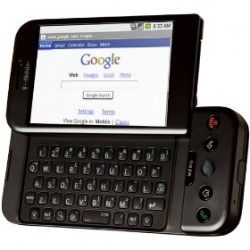 The PepsiCos of the world are leading the way in mobile recruiting, but most companies are still figuring out what it is job candidates want to do with a mobile phone, how they’ll use it, how much time they’ll spend on it, and what sort of experience they’ll want as compared to what they might want in a corporate career site.
The PepsiCos of the world are leading the way in mobile recruiting, but most companies are still figuring out what it is job candidates want to do with a mobile phone, how they’ll use it, how much time they’ll spend on it, and what sort of experience they’ll want as compared to what they might want in a corporate career site.
With all that in mind, Charles Purdy, from Monster, speaking at a conference on mobile recruiting a few minutes ago in San Francisco, gave some advice for those corporations looking to put career information on smart phones:
- Think of mobile phones as devices that can help move your company to a results-oriented workplace. Specifically, he says: they help you get talented people, regardless of where they live. They help promote work-life balance. They reduce overhead costs. They help customers by reducing time-zone issues. Rather than just be a new medium for transmitting job information, they can take your recruiting to a new level.
- Use mobile tools to extend your recruiting brand, not reinvent it. Some companies, he says, that have created new “mobile brands” have found themselves scrambling to get those new brands lined up with their “old brands.”
- Despite the importance of the above bullet point, make sure you use the phone application you’re building to take advantage of what the phone can do that a computer can’t as well (such as using location-based tools).
- Captivate people about what it’s like to work at your organization. Make sure your “day in the life” sorts of videos work well on the phone.
- Use your employees as a powerful resource. Make sure you use social media to push out to smart phone and other users information about the good work employees are doing; it’s good for retention, and good for your business. Team up with your marketing and PR departments to work on how best to do this.
- Avoid the famous black hole. Employees are going to want immediate gratification when interacting with a company — even more with a smart phone than ever before.
Purdy also shared a few stats from Monster that it’s learning from its smart phone users.
- The most common keyword for job searches is “sales.” That’s followed by the keywords marketing, IT, manager, retail, healthcare, and accounting.
- Mobile users of Monster’s iPhone app behave differently from those who go to Monster.com. Visitors to Monster’s mobile app visit 42% more often than visitors to Monster.com. But they spend much less time (66% less) in the app than on Monster.com. (I think Sodexo’s finding something different in some early data it has on its mobile job-seekers, who are spending more time during mobile visits than the main career site visitors do.)
- As compared to Monster.com users from computers, mobile users are a bit more likely to be male, earn $75,000-99,000, are likely to be employed and thus more passive candidates, and more likely to have graduate degrees. Purdy notes that these stats are likely to change — fairly quickly.